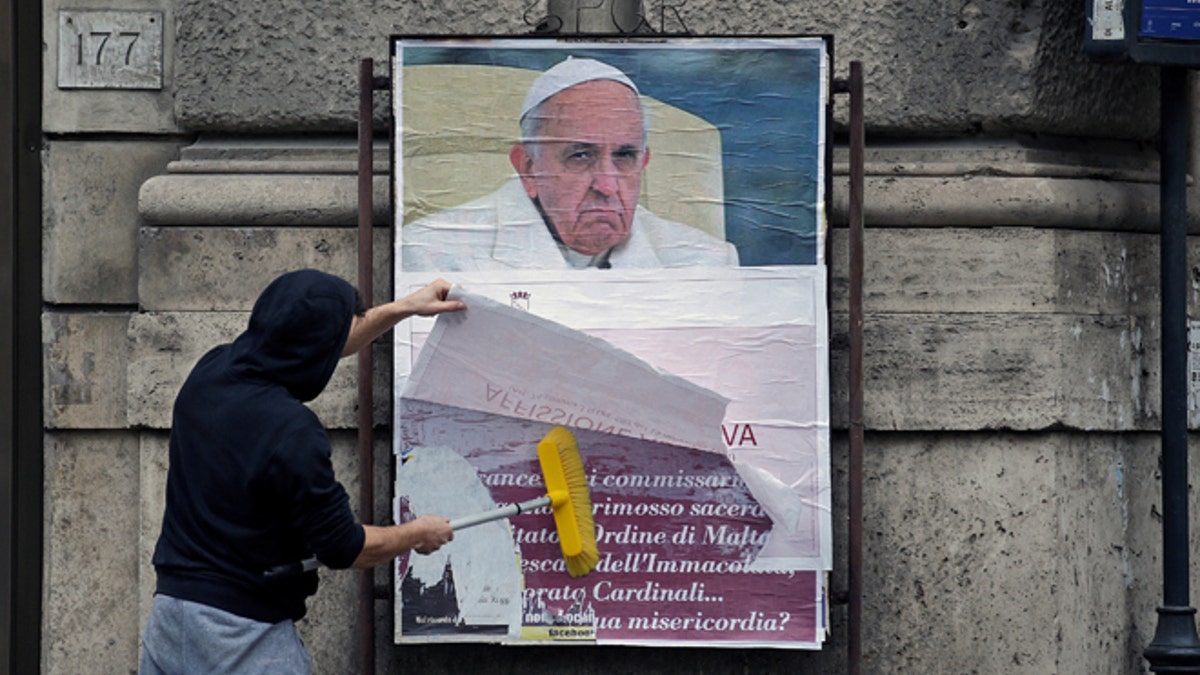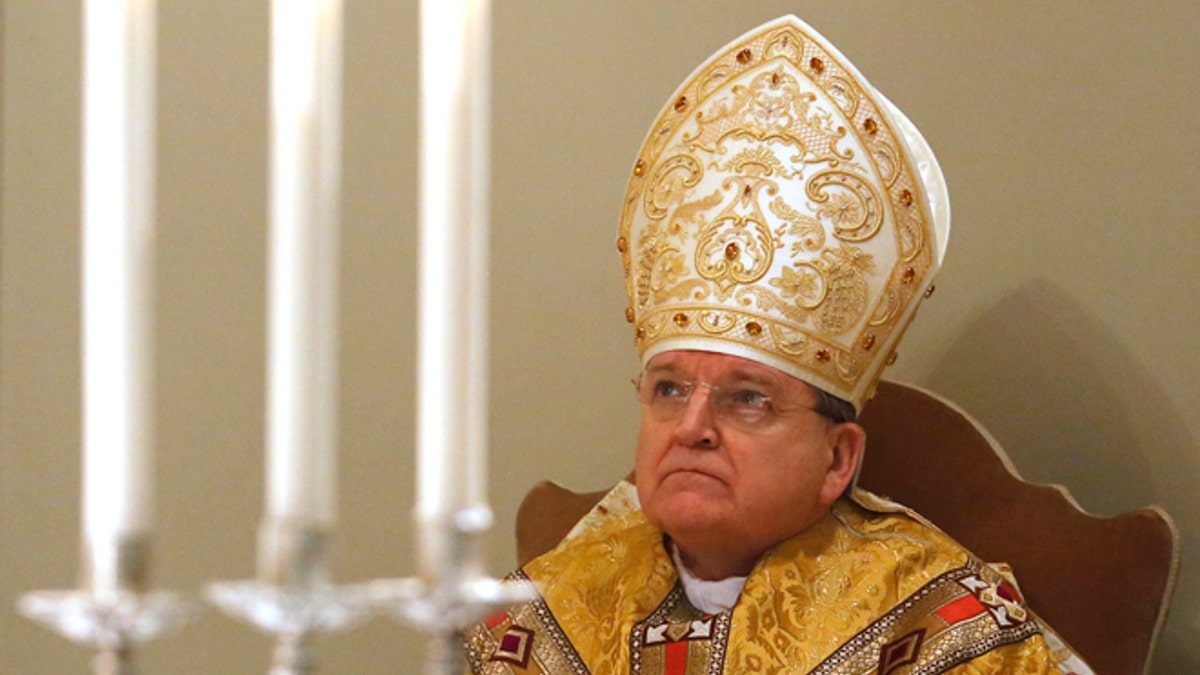
A worker covers a poster accusing the pope of attacking conservative Catholics in Rome, Italy, February 5, 2017 (Reuters)
Romans awoke last Saturday morning to find the walls of their city plastered with dozens of posters featuring a scowling Pope Francis hovering above text asking the pontiff “Where’s your mercy?”
The accusations of hypocrisy aimed at the Catholic leader’s call for a more compassionate church has Italian police frantically searching security camera footage for the culprits. But so far, there have been few leads and no group has claimed responsibility for the posters.
But some are pointing fingers at the more conservative faction of the Catholic Church because the posters, which had a message about the “decapitation” of the Knights of Malta, appeared on the same day that Francis appointed his own special delegate to that patrician order – a move his critics have called a hostile takeover.
“Ah Francis, you’ve taken over congregations, removed priests, decapitated the Order of Malta and the Franciscans of the Immaculate, ignored Cardinals… but where’s your mercy?” the poster said.
Pope Francis’s progressive agenda on issues like migration, climate change and poverty has earned him global popularity – particularly among more liberal Catholics – that eluded his predecessor, Pope Benedict XVI. But he’s drawn scorn and sharp criticism among conservative members of the church because he’s marginalized or demoted many Vatican traditionalists and his exhortation on family and divorce, “Amoris Laetitia,” lacked clarity.
“This is a symptom of not having a clear reform,” Chad Pecknold, an associate professor of systematic theology at the Catholic University of America, told Fox News. “There has been not clear consensus of understanding when it comes to ‘Amoris Laetitia.’”
While the criticism over Francis’ perceived mercy-over-morals papacy has until recently been confined to blogs, interviews and conferences, the pope’s intervention in the Knights of Malta order appears to have driven some conservative critics over the edge.
On Saturday, Francis named Angelo Becciu, a top Vatican archbishop, to be his special delegate to the order. Francis gave Becciu, the No. 2 in the Vatican secretariat of state, "all necessary powers" to help lay the groundwork for a new constitution for the order, lead the spiritual renewal of its professed knights and prepare for the election of a new grand master, expected in three months.
The controversial move also sidelined conservative U.S. Cardinal Raymond Burke and comes only two months after the Knights' then-grand master Fra' Matthew Festing – with Burke's support – sacked the grand chancellor, Albert von Boeselager, for allegedly overseeing charities in Myanmar that took part in a program offering free condoms to prostitutes, among others. Critics of Burke, however, say he dismissed Boeselager because his policies were considered too liberal.
After learning that Boeselager’s ouster had been done in his name, Francis effectively took over the order. He asked Festing to resign, restored Boeselager to his position, declared the Knights' sovereign decisions on the matter "null and void" and appointed Becciu to temporarily help run the order.
The Knights are a unique organization: An aristocratic lay religious order that traces its history to the Crusades, the order runs a vast humanitarian organization around the world involving over 100,000 staff and volunteers. The order also enjoys sovereign status and has diplomatic relations with over 100 countries and the Holy See.
Burke – who is known to be friendly with President Trump’s Chief Strategist Steve Bannon and is a popular figure among conservative Catholics in the U.S. – has been one of the pope’s staunchest critics.

Cardinal Raymond Leo Burke leads a Holy Mass in the chapel of the Vatican Governorate to mark the opening of the Judicial Year of the Tribunal of Vatican City at the Vatican, January 11, 2014. REUTERS/Stefano Rellandini (VATICAN - Tags: RELIGION) - RTX179EI
Besides his involvement in the Knights of Malta, Burke was one of four cardinals who publicly asked Francis to clarify whether divorced and civilly remarried Catholics can receive Holy Communion. The pontiff hasn't responded directly, though he has made it clear he favors case-by-case allowances.
“There is a power struggle with Cardinal Burke,” Pecknold said. “Burke has questioned the Holy Father on his reforms and what they entail.”
Pecknold said that the ambiguity over whether divorced and civilly remarried Catholics can receive Communion has become the biggest theological issue that many conservative members of the Vatican have with Francis.
For his part, Francis has remained vague on the reforms in large part because if he were to take an open stance on changing the Church's attitude, it could create an internal rift that would be difficult to heal.
“That is why the pope may be so reticent to clarify anything,” Peckhold said. “But at the end of the day, one has to ask if they are being faithful to Christ’s teaching because that is what good reform is all about.”
The Associated Press contributed to this report.
